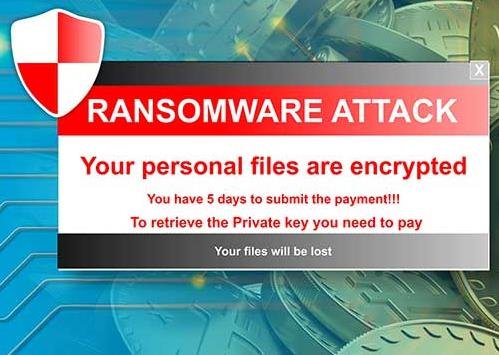A ransomware attack on February 9 has thrown the operations of casinos, government services, and telecommunications under the control of the Sault Ste. Marie Tribe of Chippewa Indians into disarray. The cyberattack, allegedly orchestrated by the notorious hacking group RansomHub, has raised alarm bells across Michigan, as the group claims to have stolen over 119 GB of sensitive data.
Casino Shutdowns and Data Theft: The Immediate Impact
In what seems to be a coordinated assault on the tribe’s digital infrastructure, RansomHub’s attack has caused significant disruptions to operations at Kewadin Casinos, tribal government buildings, and related services. Among the stolen files are more than half a million documents, including personal data, which the group claims to have leaked onto the dark web.
Kewadin Casinos, a vital part of the tribe’s economy, has faced a complete shutdown of its gaming systems. This includes the suspension of slot machines, online gaming, and membership services—resulting in a severe impact on customer experience and revenue generation. But the financial fallout doesn’t stop there. Payment processing failures have left customers unable to make cashless transactions, further compounding the chaos.
The attack has also affected customer service operations, leading to delays in reservations and membership services. For an institution heavily reliant on smooth customer interactions, this represents both a financial loss and a hit to its reputation.
Despite the ongoing crisis, Sault Ste. Marie Tribal Chairman Austin Lowes addressed the tribe’s members, acknowledging the attack and expressing shared frustration with the interruption. “We understand and share in our community’s frustration with this attack and the interruptions it has caused,” Lowes said in a statement. The tribe, in collaboration with cybersecurity experts, has been actively working on restoring operations. However, progress has been slower than anticipated, and new phone lines have been set up to communicate with the affected community. It is expected that full recovery may take another week.

RansomHub’s Allegations: A Critical Response
The group behind the cyberattack, RansomHub, wasted no time in claiming responsibility. Not only did the group lock critical systems, but they also accused the tribe of negligence and a lack of response to their demands. According to RansomHub, they attempted to contact the tribe for a week before launching their attack, but received no reply. They have since posted a statement on their dark web leak site, which contains a detailed account of their activities.
The hackers were quick to point out the tribe’s failure to act, specifically calling out their insurers—Corvus Insurance by Travelers, Crum & Forster Specialty Insurance Company, and Cowbell Cyber Risk Insurance—for not taking adequate steps to mitigate the damage. In fact, RansomHub claims that the lack of response only fueled their decision to escalate the attack.
“Despite multiple attempts to reach out via email and phone, no response was received from the tribe’s Board of Directors,” RansomHub stated. “This is a blatant disregard for the personal data of their residents, customers, and employees.” The group has given the tribe until Wednesday to respond to their demands, threatening to release all stolen data if the tribe fails to comply.
The Tribe’s Response and Cybersecurity Experts Weigh In
Despite the ongoing challenges, the Sault Tribe has been proactive in addressing the cybersecurity breach. With the help of expert consultants, the tribe has been working to restore its services. The situation remains fluid, with significant progress still required before full operations can resume.
The community is understandably upset, as the interruption has led to a temporary halt in business activities, and the stolen data has created concerns about privacy breaches. But cybersecurity experts are already using this incident as an example of how vulnerable even large organizations can be to well-coordinated cyberattacks.
One major takeaway from the attack is the importance of regular data backups. Experts recommend that all businesses, particularly those with sensitive customer data, invest in secure, redundant backup systems. In addition, strong phishing awareness programs and multi-factor authentication (MFA) could have potentially mitigated the severity of the attack.
For casinos and other industries dealing with high-volume transactions and sensitive information, downtime is costly—not only in terms of direct financial loss but also in reputational damage. Restoring the trust of customers, employees, and the public will be a long-term challenge.
Experts also point to the need for comprehensive incident response plans, which can help mitigate the impact of such breaches and facilitate faster recovery.
The Bigger Picture: A Growing Threat Landscape
While the attack on the Sault Tribe has garnered attention, it is far from an isolated incident. Ransomware attacks have become a growing concern worldwide, with cybercriminal groups increasingly targeting institutions that provide essential services—like casinos and government buildings. In fact, the gaming industry, particularly, has emerged as a prime target for hackers, thanks to the vast sums of money circulating within these systems.
In this context, the Sault Tribe’s experience is not just a cautionary tale—it’s a glimpse into the larger cyber threat landscape. Every industry, from healthcare to finance, is vulnerable. This attack serves as a reminder that no organization is immune from a well-organized ransomware campaign.
The ongoing recovery efforts in Michigan will undoubtedly be scrutinized by both cybersecurity professionals and the general public. If there’s any silver lining to this unfortunate event, it’s that it will prompt many businesses and organizations to reassess their own cybersecurity measures before it’s too late.
Leave a Reply